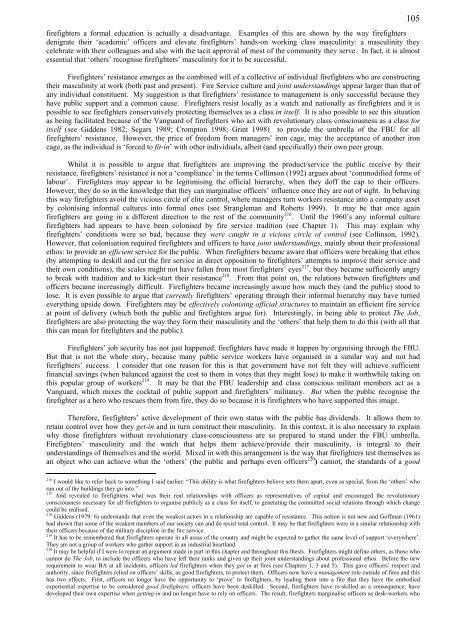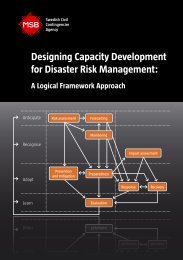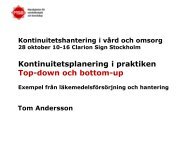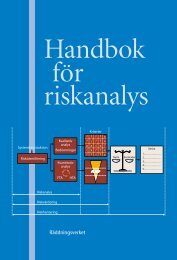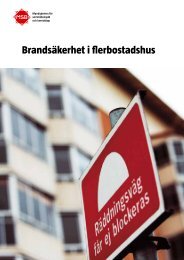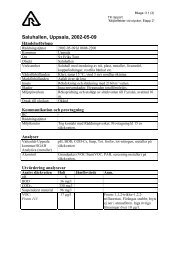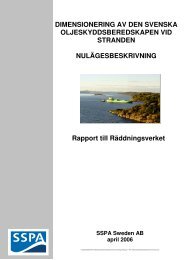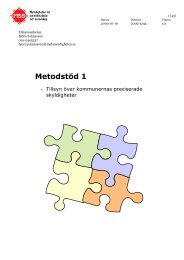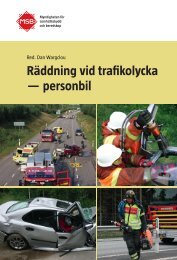One more last working class hero
One more last working class hero
One more last working class hero
Create successful ePaper yourself
Turn your PDF publications into a flip-book with our unique Google optimized e-Paper software.
firefighters a formal education is actually a disadvantage. Examples of this are shown by the way firefighters<br />
denigrate their ‘academic’ officers and elevate firefighters’ hands-on <strong>working</strong> <strong>class</strong> masculinity: a masculinity they<br />
celebrate with their colleagues and also with the tacit approval of most of the community they serve. In fact, it is almost<br />
essential that ‘others’ recognise firefighters’ masculinity for it to be successful.<br />
Firefighters’ resistance emerges as the combined will of a collective of individual firefighters who are constructing<br />
their masculinity at work (both past and present). Fire Service culture and joint understandings appear larger than that of<br />
any individual constituent. My suggestion is that firefighters’ resistance to management is only successful because they<br />
have public support and a common cause. Firefighters resist locally as a watch and nationally as firefighters and it is<br />
possible to see firefighters conservatively protecting themselves as a <strong>class</strong> in itself. It is also possible to see this situation<br />
as being facilitated because of the Vanguard of firefighters who act with revolutionary <strong>class</strong> consciousness as a <strong>class</strong> for<br />
itself (see Giddens 1982; Segars 1989; Crompton 1998; Grint 1998) to provide the umbrella of the FBU for all<br />
firefighters’ resistance. However, the price of freedom from managers’ iron cage, may the acceptance of another iron<br />
cage, as the individual is ‘forced to fit-in’ with other individuals, albeit (and specifically) their own peer group.<br />
Whilst it is possible to argue that firefighters are improving the product/service the public receive by their<br />
resistance, firefighters’ resistance is not a ‘compliance’ in the terms Collinson (1992) argues about ‘commodified forms of<br />
labour’. Firefighters may appear to be legitimising the official hierarchy, when they doff the cap to their officers.<br />
However, they do so in the knowledge that they can marginalise officers’ influence once they are out of sight. In behaving<br />
this way firefighters avoid the vicious circle of elite control, where managers turn workers resistance into a company asset<br />
by colonising informal cultures into formal ones (see Strangleman and Roberts 1999). It may be that once again<br />
firefighters are going in a different direction to the rest of the community 216 . Until the 1960’s any informal culture<br />
firefighters had appears to have been colonised by fire service tradition (see Chapter 1). This may explain why<br />
firefighters’ conditions were so bad, because they were caught in a vicious circle of control (see Collinson, 1992).<br />
However, that colonisation required firefighters and officers to have joint understandings, mainly about their professional<br />
ethos: to provide an efficient service for the public. When firefighters became aware that officers were breaking that ethos<br />
(by attempting to deskill and cut the fire service in direct opposition to firefighters’ attempts to improve their service and<br />
their own conditions), the scales might not have fallen from most firefighters’ eyes 217 , but they became sufficiently angry<br />
to break with tradition and to kick-start their resistance 218 . From that point on, the relations between firefighters and<br />
officers became increasingly difficult. Firefighters became increasingly aware how much they (and the public) stood to<br />
lose. It is even possible to argue that currently firefighters’ operating through their informal hierarchy may have turned<br />
everything upside down. Firefighters may be effectively colonising official structures to maintain an efficient fire service<br />
at point of delivery (which both the public and firefighters argue for). Interestingly, in being able to protect The Job,<br />
firefighters are also protecting the way they form their masculinity and the ‘others’ that help them to do this (with all that<br />
this can mean for firefighters and the public).<br />
Firefighters’ job security has not just happened; firefighters have made it happen by organising through the FBU.<br />
But that is not the whole story, because many public service workers have organised in a similar way and not had<br />
firefighters’ success. I consider that one reason for this is that government have not felt they will achieve sufficient<br />
financial savings (when balanced against the cost to them in votes that they might lose) to make it worthwhile taking on<br />
this popular group of workers 219 . It may be that the FBU leadership and <strong>class</strong> conscious militant members act as a<br />
Vanguard, which mixes the cocktail of public support and firefighters’ militancy. But when the public recognise the<br />
firefighter as a <strong>hero</strong> who rescues them from fire, they do so because it is firefighters who have supported this image.<br />
Therefore, firefighters’ active development of their own status with the public has dividends. It allows them to<br />
retain control over how they get-in and in turn construct their masculinity. In this context, it is also necessary to explain<br />
why those firefighters without revolutionary <strong>class</strong>-consciousness are so prepared to stand under the FBU umbrella.<br />
Firefighters’ masculinity and the watch that helps them achieve/provide their masculinity, is integral to their<br />
understandings of themselves and the world. Mixed in with this arrangement is the way that firefighters test themselves as<br />
an object who can achieve what the ‘others’ (the public and perhaps even officers 220 ) cannot, the standards of a good<br />
105<br />
216 I would like to refer back to something I said earlier: “This ability is what firefighters believe sets them apart, even as special, from the ‘others’ who<br />
run out of the buildings they go into.”<br />
217 And revealed to firefighters what was their real relationships with officers as representatives of capital and encouraged the revolutionary<br />
consciousness necessary for all firefighters to organise publicly as a <strong>class</strong> for itself, to generating the committed social relations through which change<br />
could be realised.<br />
218 Giddens (1979: 6) understands that even the weakest actors in a relationship are capable of resistance. This notion is not new and Goffman (1961)<br />
had shown that some of the weakest members of our society can and do resist total control. It may be that firefighters were in a similar relationship with<br />
their officers because of the military discipline in the fire service.<br />
219 It has to be remembered that firefighters operate in all areas of the country and might be expected to gather the same level of support ‘everywhere’.<br />
They are not a group of workers who gather support in an industrial heartland.<br />
220 It may be helpful if I were to repeat an argument made in part in this chapter and throughout this thesis. Firefighters might define others, as those who<br />
cannot do The Job, to include the officers who have left their ranks and given up their joint understandings about professional ethos. Before the new<br />
requirement to wear BA at all incidents, officers led firefighters when they got in at fires (see Chapters 1, 3 and 5). This gave officers’ respect and<br />
authority, since firefighters relied on officers’ skills, as good firefighters, to protect them. Officers now have a management role outside of fires and this<br />
has two effects. First, officers no longer have the opportunity to ‘prove’ to firefighters, by leading them into a fire that they have the embodied<br />
experiential expertise to be considered good firefighters: officers have been deskilled. Second, firefighters have re-skilled as a consequence, have<br />
developed their own expertise when getting-in and no longer have to rely on officers. The result, firefighters marginalise officers as desk-workers who


